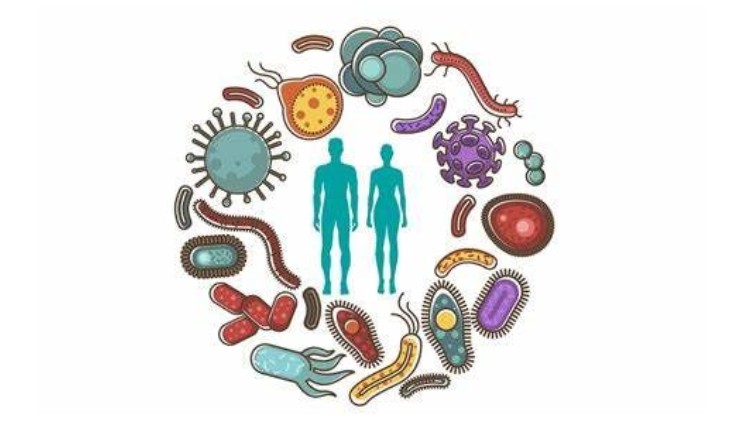
Microbial Frontiers: Exploring the World of Microbiomes
What you will learn
Gain a comprehensive insight into the role of microbiomes in human health, agriculture, and ecosystems.
Explore connections between microbiology, genetics, nutrition, and environmental science.
Stay abreast of the latest advancements in microbiome research, positioning yourself as a valuable asset in various industries.
Conduct cutting-edge research to advance our understanding of microbial communities.
Add-On Information:
Note➛ Make sure your 𝐔𝐝𝐞𝐦𝐲 cart has only this course you're going to enroll it now, Remove all other courses from the 𝐔𝐝𝐞𝐦𝐲 cart before Enrolling!
- Course Caption: Microbial Frontiers: Exploring the World of Microbiomes
-
- Unraveling Microbial Ecosystems: Dive deep into the complex dynamics of microbial communities, understanding their intricate structures, diverse functions, and multifaceted interspecies interactions across various habitats within and outside hosts.
- Advanced Omics Technologies: Gain proficiency in interpreting data derived from cutting-edge techniques such as metagenomics, metatranscriptomics, metaproteomics, and metabolomics, which are crucial for the high-resolution analysis of microbial populations and their activities.
- Bioinformatics for Microbiome Data: Develop practical skills in utilizing essential bioinformatics tools and computational pipelines to effectively process, analyze, and visualize large-scale microbiome datasets, translating raw sequencing data into meaningful biological insights.
- Therapeutic Applications & Interventions: Explore the rapidly emerging field of microbiome-based therapeutics, including the mechanisms and applications of probiotics, prebiotics, synbiotics, fecal microbiota transplantation (FMT), and bacteriophage therapy in addressing various health conditions.
- Personalized Health & Nutrition: Understand how individual variations in microbiome composition and function can influence host responses to diet, drug efficacy and metabolism, and susceptibility to chronic diseases, laying the groundwork for personalized medicine and nutritional strategies.
- Environmental Bioremediation: Discover the critical and often overlooked roles of microbial communities in essential environmental processes like nutrient cycling, pollution degradation (e.g., plastics, oil spills), and their potential for climate change mitigation, opening avenues for sustainable ecological solutions.
- Ethical and Regulatory Landscape: Examine the complex ethical considerations surrounding microbiome research, including issues of data privacy, informed consent, and the responsible development and commercialization of microbiome-based products, alongside relevant regulatory frameworks in different regions.
- Experimental Design & Methodological Rigor: Learn the fundamental principles of designing robust microbiome studies, encompassing best practices for sample collection, processing, sequencing, and appropriate statistical analysis, ensuring the validity and reproducibility of research findings.
- Historical Context and Future Directions: Trace the fascinating evolution of microbiome science, from early microbiological discoveries to current breakthroughs, and critically evaluate the pressing challenges and promising research frontiers that will shape the field’s future.
- Translational Research Pathways: Understand how fundamental microbiome discoveries are translated into practical applications, whether in clinical diagnostics, agricultural innovation, industrial biotechnology, or public health initiatives, bridging the gap between bench and real-world impact.
- PROS:
- Flexible Learning Environment: Engage with comprehensive course material at your own pace, from any location in the world, allowing for seamless integration into busy professional or academic schedules without geographical constraints.
- Cutting-Edge Curriculum: Benefit from a meticulously curated and regularly updated curriculum that incorporates the very latest scientific discoveries, technological advancements, and evolving methodologies in the rapidly progressing field of microbiome science.
- Interdisciplinary Skill Development: Acquire a highly valuable and unique blend of biological, computational, and analytical skills, making you a competitive candidate in diverse sectors, ranging from biotechnology and pharmaceuticals to environmental management and public health.
- Expert-Led Instruction: Learn directly from leading researchers and seasoned practitioners at the forefront of the microbiome field, gaining invaluable insights, perspectives, and practical knowledge from those actively shaping its future.
- CONS:
- Limited Hands-On Lab Experience: While providing extensive theoretical knowledge and data analysis skills, the online format inherently restricts direct practical experience with wet-lab experimental techniques and bench-side laboratory procedures.
English
language